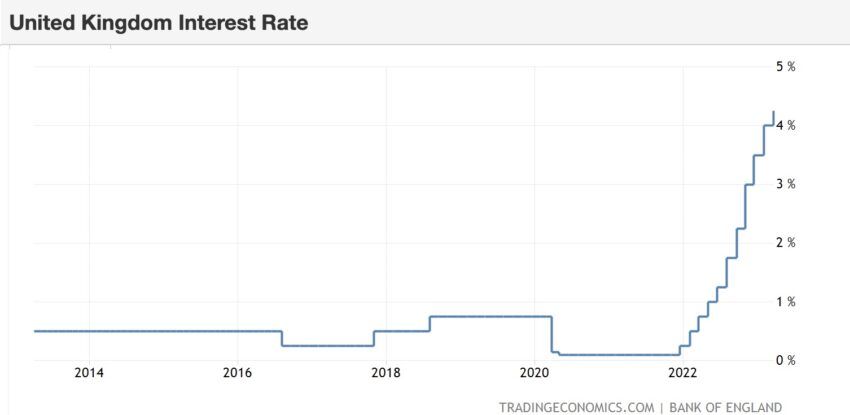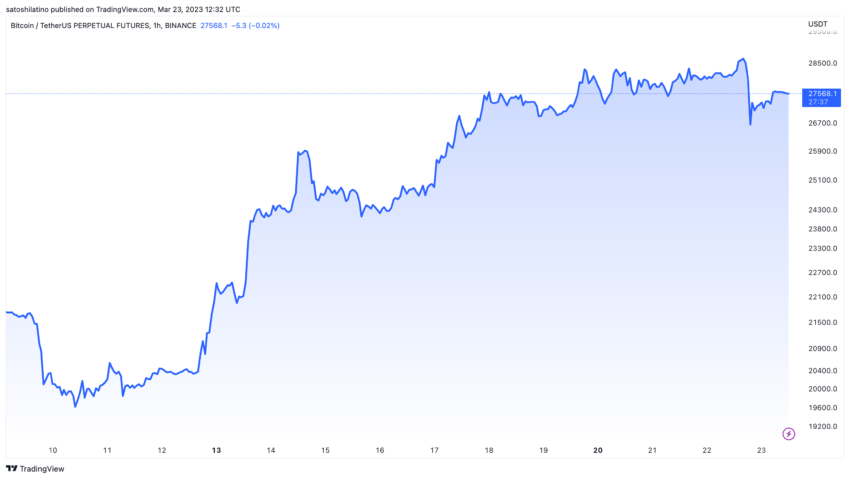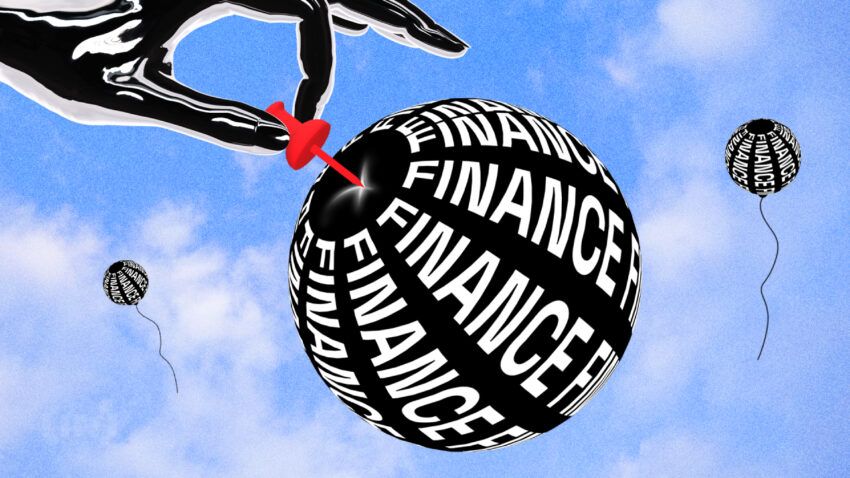In a move that surprised some market observers, the Bank of England (BoE) recently raised its benchmark interest rate to 4.25%, the highest level since 2008. As the financial world digests this news, many are wondering what this decision could mean for Bitcoin and the broader crypto market.

Interest Rates and Monetary Policy
Interest rates play a crucial role in managing inflation and fostering economic growth. Central banks, like the BoE, adjust these rates to stabilize their respective economies. This latest rate hike comes in the context of rising inflationary pressures and an attempt to cool down the overheated economy.
Other central banks have taken similar actions, reflecting a trend toward tightening monetary policies worldwide.
The connection between interest rates and asset prices is well-established. Generally, higher interest rates can reduce the appeal of riskier assets as investors seek safer, income-generating investments.
For Bitcoin, which is often seen as a store of value and a hedge against inflation, this rate hike could impact its attractiveness.
Potential Effects of the Rate Hike on Crypto
In the short term, the crypto market may experience increased volatility as a result of the rate hike. Investors may reevaluate their portfolios and adjust their exposure to riskier assets like cryptocurrencies. This could lead to a temporary decline in Bitcoin’s price and overall market capitalization.
Still, it is essential to consider the historical context when assessing Bitcoin’s potential response to this rate hike. In the past, crypto has shown resilience during similar monetary policy changes. However, its performance has varied depending on several factors, such as market sentiment and the state of the global economy.

One crucial factor influencing Bitcoin’s vulnerability or resilience to rate hikes is the role of institutional investors. As more institutions have entered the crypto market, their response to changes in interest rates could significantly impact the market.
If these investors perceive a higher risk in holding cryptocurrencies due to increasing rates, they may shift their capital to more traditional investments, further affecting the prices of Bitcoin and other digital assets.
Despite these challenges, the long-term outlook for Bitcoin and the cryptocurrency market remains uncertain. The decentralized nature of crypto and their potential to serve as alternative financial instruments could continue to drive adoption and demand.
Crypto investors may need to adapt their strategies in the face of rising interest rates, closely monitoring global monetary policy changes and considering their implications for the crypto market.
In adherence to the Trust Project guidelines, BeInCrypto is committed to unbiased, transparent reporting. This news article aims to provide accurate, timely information. However, readers are advised to verify facts independently and consult with a professional before making any decisions based on this content.
This article was initially compiled by an advanced AI, engineered to extract, analyze, and organize information from a broad array of sources. It operates devoid of personal beliefs, emotions, or biases, providing data-centric content. To ensure its relevance, accuracy, and adherence to BeInCrypto’s editorial standards, a human editor meticulously reviewed, edited, and approved the article for publication.


